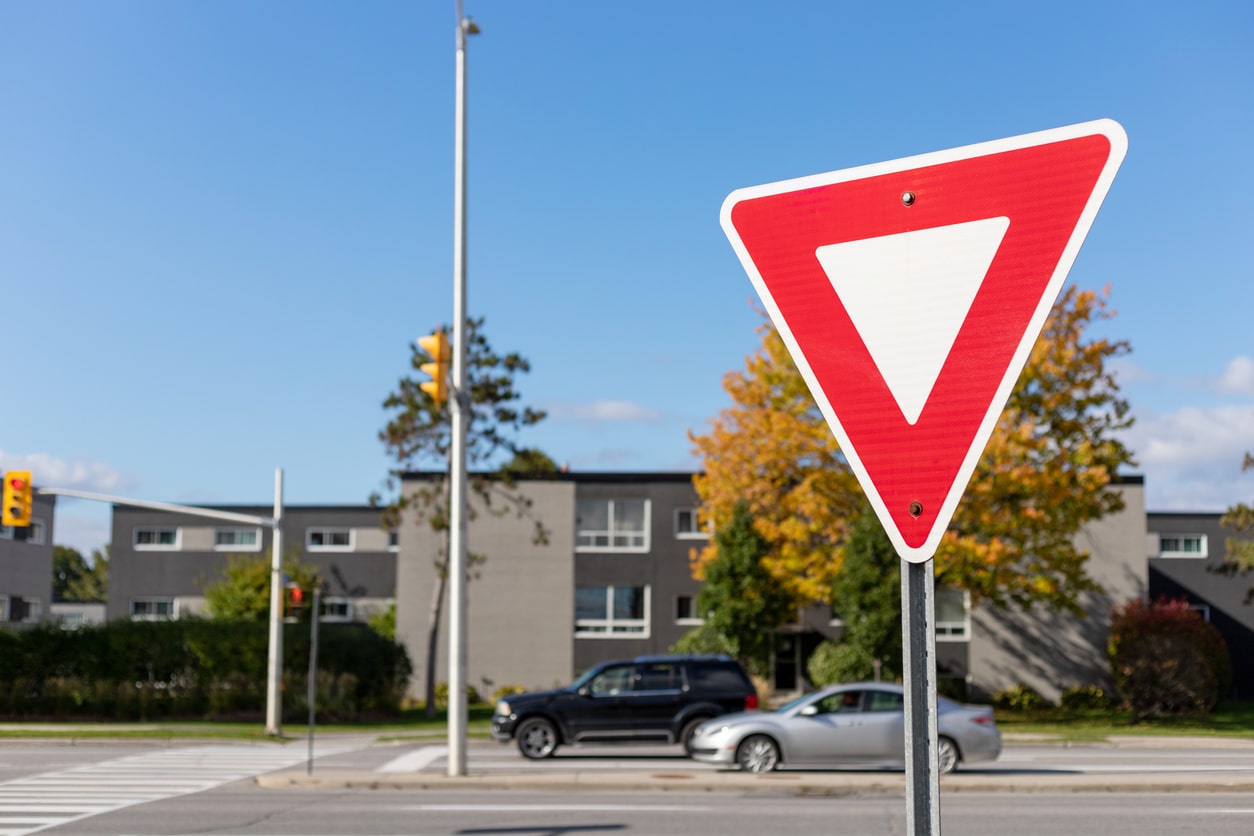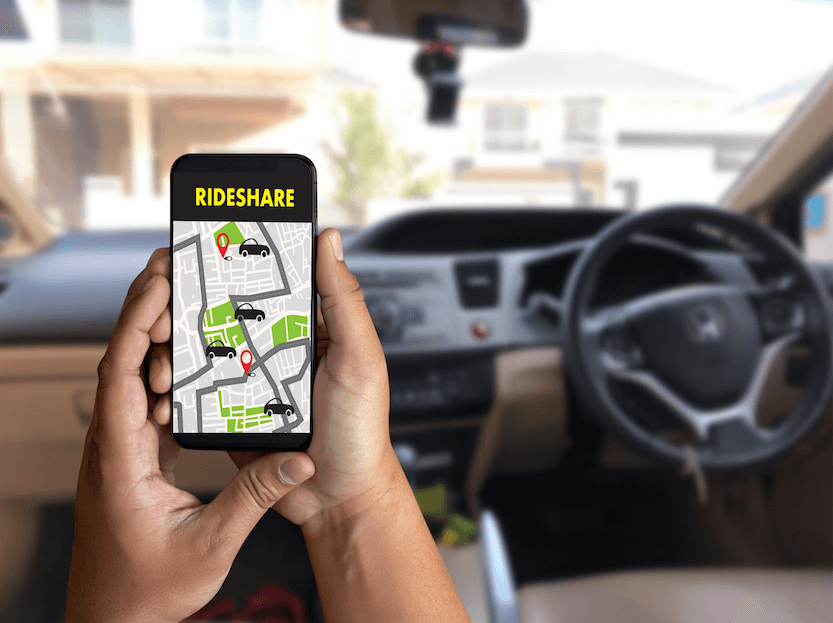
Distracted driving occurs when a driver’s attention is diverted away from the primary task of driving, increasing the risk of accidents, injuries, and fatalities. Distractions can take many forms, including visual, manual, and cognitive, and they are often caused by activities like texting, eating, using a GPS, or conversing with passengers. Distracted driving is one of the leading causes of car accidents, and drivers found to be distracted at the time of a crash may be held legally responsible for resulting damages. At 770GoodLaw, we represent victims of distracted driving accidents, helping them pursue compensation for medical bills, lost wages, property damage, and other related losses.
Types of Distracted Driving
Distracted driving can be classified into three main types, each impacting the driver’s focus in a different way:
- Visual Distractions: These occur when a driver takes their eyes off the road, such as looking at a cellphone screen, checking a GPS device, or looking at scenery outside the vehicle.
- Manual Distractions: These involve taking one or both hands off the wheel to engage in activities like eating, adjusting the radio, or reaching for an item in the car.
- Cognitive Distractions: Cognitive distractions happen when a driver’s mind is not focused on driving. Daydreaming, engaging in intense conversations, or being preoccupied with stressful thoughts are common cognitive distractions.
Common Causes of Distracted Driving
Distracted driving can arise from a wide range of activities, many of which may seem harmless but pose serious risks. Common causes include:
-
Texting or Using a Cellphone: Texting, calling, or scrolling on social media is one of the most dangerous distractions, as it combines visual, manual, and cognitive distractions.
-
Eating or Drinking: Eating or drinking while driving takes one hand off the wheel and divides attention between the food and the road.
-
Adjusting Vehicle Controls: Changing the radio station, adjusting climate controls, or programming a GPS while driving can be highly distracting.
-
Passenger Interactions: Talking with passengers, especially children or pets, can draw a driver’s focus away from the road.
-
Grooming or Self-Care: Activities like applying makeup or fixing hair while driving are common distractions, particularly during commutes.
Legal Consequences of Distracted Driving
Distracted driving is a serious offense in most jurisdictions, often resulting in penalties for the driver. Legal consequences may include:
-
Traffic Citations and Fines: Many states impose fines for using a cellphone or engaging in other distractions while driving.
-
Increased Insurance Rates: A distracted driving citation or accident may lead to increased insurance premiums due to the higher risk profile.
-
Civil Liability in Accidents: If a distracted driver causes an accident, they may be held liable for damages, including medical expenses, property damage, and pain and suffering.
-
Criminal Charges in Severe Cases: In cases where distracted driving results in serious injury or death, the driver may face criminal charges, including reckless driving or vehicular manslaughter.
Proving Distracted Driving in an Accident Claim
To establish liability in a distracted driving accident, it is essential to provide evidence that the at-fault driver was engaged in a distraction at the time of the collision. Key methods for proving distracted driving include:
- Phone Records: Obtaining cellphone records can show if the driver was texting or using their phone at the time of the accident.
- Witness Testimony: Passengers, other drivers, or bystanders who observed the driver’s behavior can provide valuable testimony regarding distractions.
- Traffic Camera or Dash Cam Footage: Video footage from nearby cameras may capture the driver engaging in distracted behavior moments before the accident.
- Accident Reconstruction: In some cases, accident reconstruction experts can analyze the scene to determine if distracted driving likely contributed to the crash.
Compensation Available for Distracted Driving Accident Victims
Victims of distracted driving accidents may be entitled to compensation to cover various losses, depending on the severity of the injuries and the impact on their lives. Common types of compensation include:
-
Medical Expenses: Coverage for hospital bills, surgeries, rehabilitation, and future medical care related to the injuries.
-
Lost Wages and Reduced Earning Capacity: Compensation for income lost during recovery, as well as long-term loss of earning potential if the injuries prevent a return to previous employment.
-
Pain and Suffering: Damages for physical pain, emotional distress, and the overall impact on the victim’s quality of life.
-
Property Damage: Reimbursement for vehicle repairs or replacement, as well as any other personal property damaged in the accident.
-
Loss of Consortium: Compensation for the impact on family relationships, including loss of companionship and support.
Steps to Take After a Distracted Driving Accident
If you’ve been involved in an accident caused by a distracted driver, taking specific actions can protect your rights and strengthen your claim. Key steps include:
- Seek Medical Attention: Even if injuries appear minor, a full medical evaluation can identify hidden issues and document injuries for your claim.
- Report the Accident: File a police report, ensuring that law enforcement is aware of any suspicions regarding distracted driving.
- Document the Scene: Take photos of the accident scene, vehicle damage, and any visible injuries, as well as noting details like road conditions and witness contact information.
- Gather Witness Statements: If there were witnesses, obtain their contact information and statements about any distracted behavior they observed.
- Consult a Personal Injury Lawyer: Legal guidance can help you navigate the claims process, handle insurance negotiations, and pursue fair compensation for your damages.
How 770GoodLaw Assists Clients in Distracted Driving Cases
At 770GoodLaw, we provide comprehensive support for clients injured by distracted drivers, from gathering evidence to negotiating settlements. Our approach includes:
- Conducting a Thorough Investigation: We gather all available evidence, including phone records, witness statements, and police reports, to prove distracted driving.
- Calculating Total Damages: Our team assesses all economic and non-economic damages, ensuring a comprehensive valuation of the claim.
- Negotiating with Insurers: We handle all communication with insurance companies, advocating for a fair settlement that reflects the full extent of our clients’ injuries and losses.
- Providing Court Representation: If a fair settlement cannot be reached, we are prepared to represent clients in court, presenting a strong case for maximum compensation.
Importance of Legal Representation in Distracted Driving Accidents
Navigating a distracted driving accident claim requires knowledge of fault laws, evidence requirements, and negotiation strategies. Skilled legal representation ensures that clients receive the compensation they deserve for their injuries and losses. At 770GoodLaw, we provide dedicated support for distracted driving accident victims, guiding them through each stage of the legal process with professionalism and care.
Why Choose 770GoodLaw for Distracted Driving Accident Claims
Our commitment to Relentless Reliability and Sincetegrity drives us to provide client-centered support in distracted driving cases. At 770GoodLaw, we work tirelessly to protect our clients’ rights, helping them recover fair compensation and move forward after an accident caused by distracted driving.


